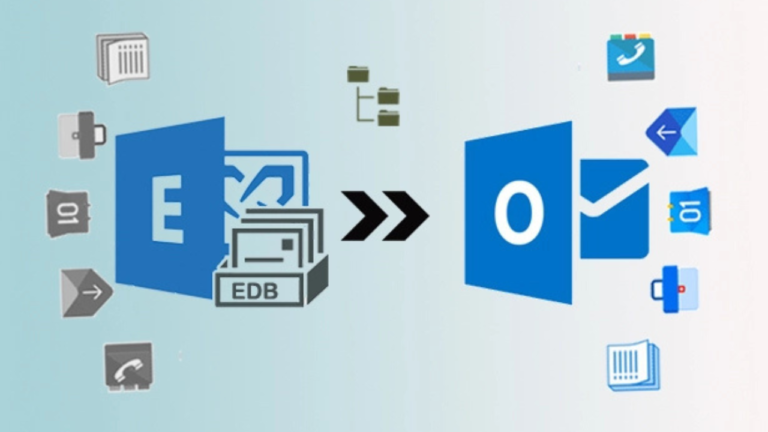The Importance of Financial Reporting for eCommerce and How Outsourcing Adds Value

For businesses of all sizes in the quick environment of electronic commerce, paying attention to financial management is critical to expand and contract appropriately with sales from numerous channels. Financial reporting gives us a clear insight into how well the company is doing, which in turn helps companies make strategic decisions, ultimately sustaining profitability. However, the nuances of eCommerce — multi-channel sales data, many transactions, and products sold in numerous units or bundle sizes — can make it difficult to use other platforms for reporting. eCommerce accounting services make all the difference, providing professional knowledge and powerful instruments to optimise your reporting duties. This blog post lets us explore how beneficial outsourcing can be for financial reporting for eCommerce businesses.
Key Components of Financial Reporting in eCommerce
1. Revenue and Sales Tracking
Tracking revenue across top channels—like websites, Amazon, and social media platforms—is the key to gaining better insights into eCommerce. This approach helps businesses identify where their sales originate and assess each channel’s performance rate. Precise cost monitoring reveals growth opportunities and highlights areas where marketing or operational adjustments might be beneficial. Specialised eCommerce accounting service providers enable businesses to automate this process, ensuring accurate revenue attribution across the right channels.
2. Cost of Goods Sold (COGS) and Inventory Tracking
Right company policies and pricing strategy: without accurate COGS data, your business risks revenue losses due to inaccurate pricing. A clear understanding of the actual cost of goods allows eCommerce firms to set product prices that maintain the necessary margins for ongoing success. Real-time inventory tracking helps prevent stockouts and overstocking, which can impact profitability. eCommerce accounting services, equipped with the right tools and expertise, ensure accurate tracking of these metrics, supporting business owners in making informed pricing and stock management decisions.
3. Expense Management
Whatever the case, managing all costs in a world of many moving parts is critical, especially in eCommerce, where expenses can range from shipping to marketing and transaction fees. A comprehensive view of operational costs: by tracking expenses in detail, businesses gain insight into where their money is going and can identify potential savings areas. eCommerce accounting services enable companies to control their costs more tightly, enhancing profitability and financial stability.
4. Cash Flow Analysis
For an eCommerce business, cash flow is comparable to lifeblood, especially for those managing delayed payments, refunds, or seasonal demand fluctuations. Effective cash flow monitoring helps eCommerce businesses forecast shortfalls and prepare for peak sales without straining available capital. Reliable eCommerce accounting services offer specialised insights and tools for cash flow management, helping businesses remain resilient through financial fluctuations. Businesses that rely on Amazon for sales can use resources like Amazon seller accounting to understand the specific cash flow challenges unique to marketplace sales and fees.
Challenges of In-House Financial Reporting in eCommerce
1. Data Complexity
eCommerce stores process data from numerous sales channels, payment processors, and logistic providers, making data integration challenging due to the large amounts of information needing consolidation. In-house teams often struggle with this complexity, leading to missed or delayed reports. eCommerce accounting services simplify the process with tools that merge data effortlessly.
2. Time and Resource Constraints
The process of in-house financial reporting quickly becomes time-consuming and resource-intensive, detracting from essential activities that drive a business, like customer support and marketing. With so many transactions, data entry becomes overwhelming. eCommerce accounting services alleviate much of this stress, allowing teams to focus on growth instead.
3. Compliance and Taxation
Different regions come with different tax laws. In-house teams may lack the specialised knowledge required for compliance, increasing regulatory risks. Outsourced accounting services bring expertise in tax and compliance, ensuring businesses stay current.
4. Accuracy and Risk of Errors
Connecting to a data repository reduces error risks from manual entry, ensuring more accurate reporting. Incorrect financial data causes accounting mistakes and can mislead decisions, affecting profitability. eCommerce accounting services use technology for precise, on-time reporting.
How Outsourcing Financial Reporting Adds Value for eCommerce
1. Access to Specialised Expertise
Outsourced accounting services bring best practices, a deep understanding of regulations like sales tax, and expertise in setting up accounts accurately. Another advantage of eCommerce accounting service providers is their experience handling multi-channel sales data, making them well-suited to deliver precise, relevant reports.
2. Enhanced Accuracy and Reduced Errors
Outsourced accounting utilises advanced software to automate data consolidation and reduce the risk of human error. Through these services, businesses achieve precise reporting without mistakes often resulting from manual processes. The availability of accurate data is essential for financial reliability and compliance.
3. Scalability for Growth
As eCommerce businesses expand, managing an increasing volume of financial data becomes difficult. eCommerce accounting services are easily scalable, supporting business growth while maintaining high-quality reporting. Outsourcing these functions enables the flexibility of handling more transactions and data as the business scales.
4. Improved Decision-Making
eCommerce accounting services provide a bird’s-eye view of finances, delivering in-depth insights into performance metrics, profitability analysis, and ROI. This professional reporting enables companies to make data-driven decisions crucial for strategic planning and long-term growth.
What to Look for While Choosing Outsourced Accounting Services for Financial Reporting
Outsourcing financial reporting for eCommerce businesses can streamline core operations and keep them competitive. When selecting outsourced accounting services, seek expertise in eCommerce metrics like inventory turnover, gross margin, and average order value. Look for providers focused on digital integration with platforms like Shopify, WooCommerce, or Amazon to ensure smooth data flow. Clear control lines, accuracy, timely reporting, and regulatory compliance are essential. For long-term success, transparent communication and scalability as your business grows are also critical, providing actionable insights as you expand.
Final Word
The strategic advantage of outsourcing financial reporting in eCommerce is that it allows businesses to focus on growth while accessing accurate, compliant, and insightful data. eCommerce accounting services streamline complex procedures, reduce error rates, and provide sales insights through expert knowledge and cutting-edge tools. This approach boosts profitability and improves decision-making, fostering long-term sustainability and scalability, which are key in a competitive landscape.






